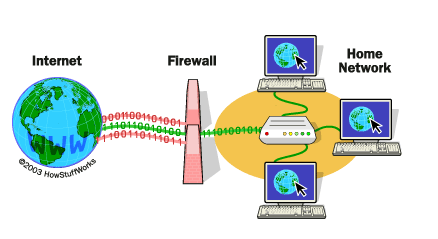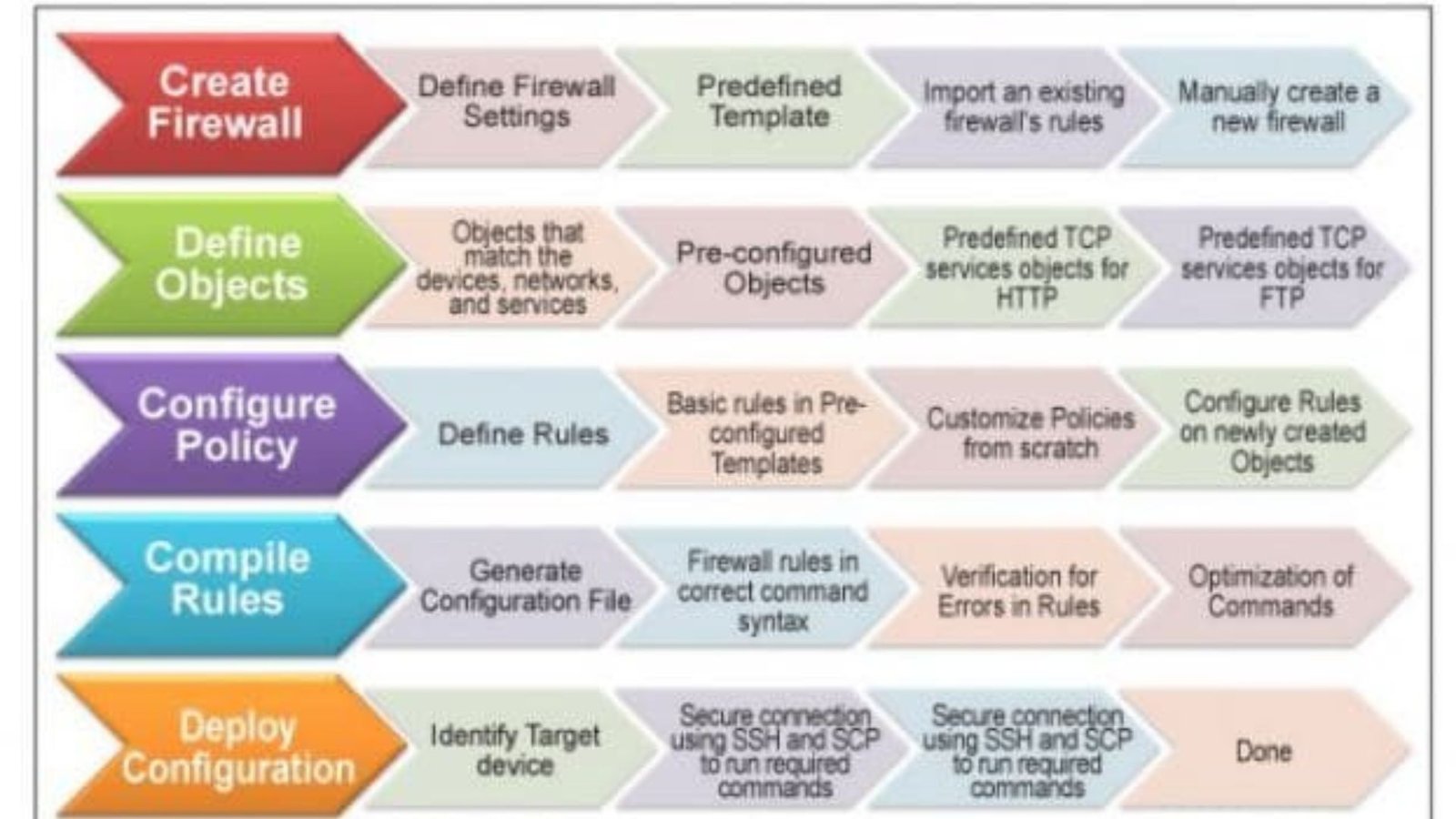Identify Your Business’s Security Needs
Right Firewall. Understanding your business’s unique security requirements is the first step. Consider the sensitivity of your data, the size of your network, and the potential risks you face. This helps in selecting a firewall that provides adequate protection without unnecessary features.
Explore Different Types of Firewalls
Firewalls come in various forms, each with distinct advantages:
- Packet-Filtering Firewalls: Ideal for small businesses with basic needs, offering simple filtering based on IP addresses and port numbers.
- Stateful Inspection Firewalls: Suitable for medium-sized businesses needing dynamic security, as they monitor the state of active connections.
- Proxy Firewalls: Beneficial for businesses focused on privacy and content filtering, acting as intermediaries between users and the internet.
- Next-Generation Firewalls (NGFWs): Essential for larger businesses requiring comprehensive security, combining traditional firewalls with advanced features like intrusion prevention and application control.
Consider Network Size and Traffic Volume
The size of your network and the volume of traffic it handles are crucial factors:
- Small Networks: A basic firewall might suffice, providing essential protection with minimal complexity.
- Large Networks: High-traffic networks require robust firewalls with higher throughput and advanced filtering capabilities.
Balance Cost with Features
Budget is a key consideration, but so is the value of features:
- Budget-Friendly Options: Small businesses might prioritize cost-effective firewalls that cover basic security needs.
- Investing in Security: Larger businesses or those with high-risk data should invest in advanced firewalls that offer comprehensive protection and scalability.
Prioritize Ease of Management
A firewall that’s difficult to manage can become a liability:
- User-Friendly Interface: Opt for firewalls with intuitive interfaces that simplify management tasks like configuring rules and monitoring traffic.
- Support and Documentation: Ensure that there’s reliable vendor support and thorough documentation available to assist with any issues.
Ensure Compatibility and Integration
Your firewall should work seamlessly with existing systems:
- System Compatibility: Check that the firewall is compatible with your current hardware, software, and network infrastructure.
- Integration with Other Tools: Choose a firewall that can easily integrate with other security measures like VPNs or intrusion detection systems.

Right Firewall
Evaluate Scalability for Future Growth
Choose a firewall that can grow with your business:
- Scalable Solutions: Ensure the firewall can expand to meet increasing demands as your business evolves.
- Adaptable Features: Look for firewalls that offer flexible configurations to address future security challenges.
Review Vendor Support and Update Policies
Ongoing support and updates are essential for maintaining security:
- Reliable Vendor Support: Choose a firewall from a vendor known for responsive customer service and technical support.
- Regular Updates: Ensure the firewall receives frequent updates to protect against emerging threats and vulnerabilities.
Conclusion
Selecting the right firewall involves more than just choosing a product—it’s about aligning the firewall with your business’s specific needs, future growth, and security landscape. By carefully evaluating types, costs, scalability, and vendor support, you can ensure robust protection for your network.











